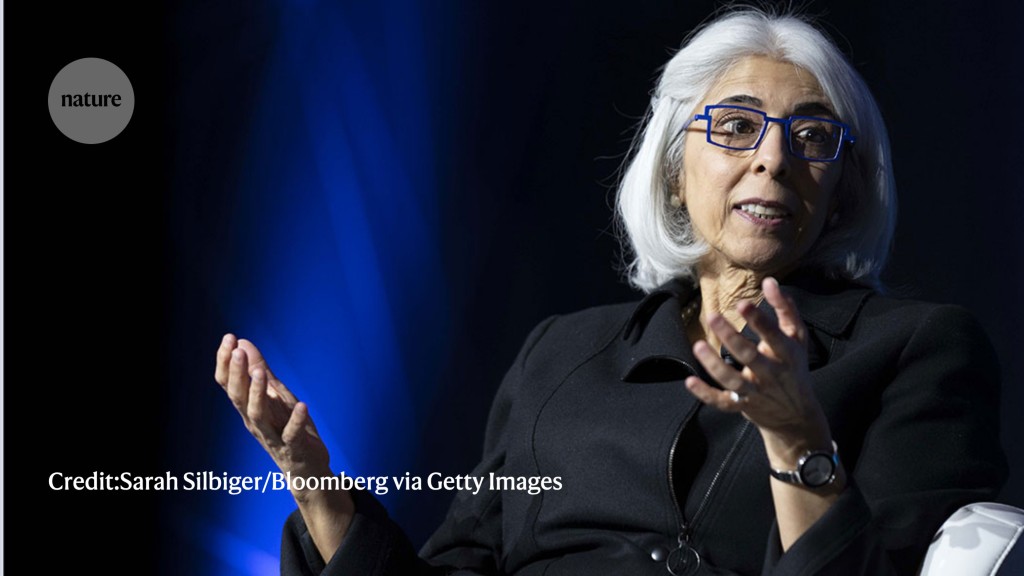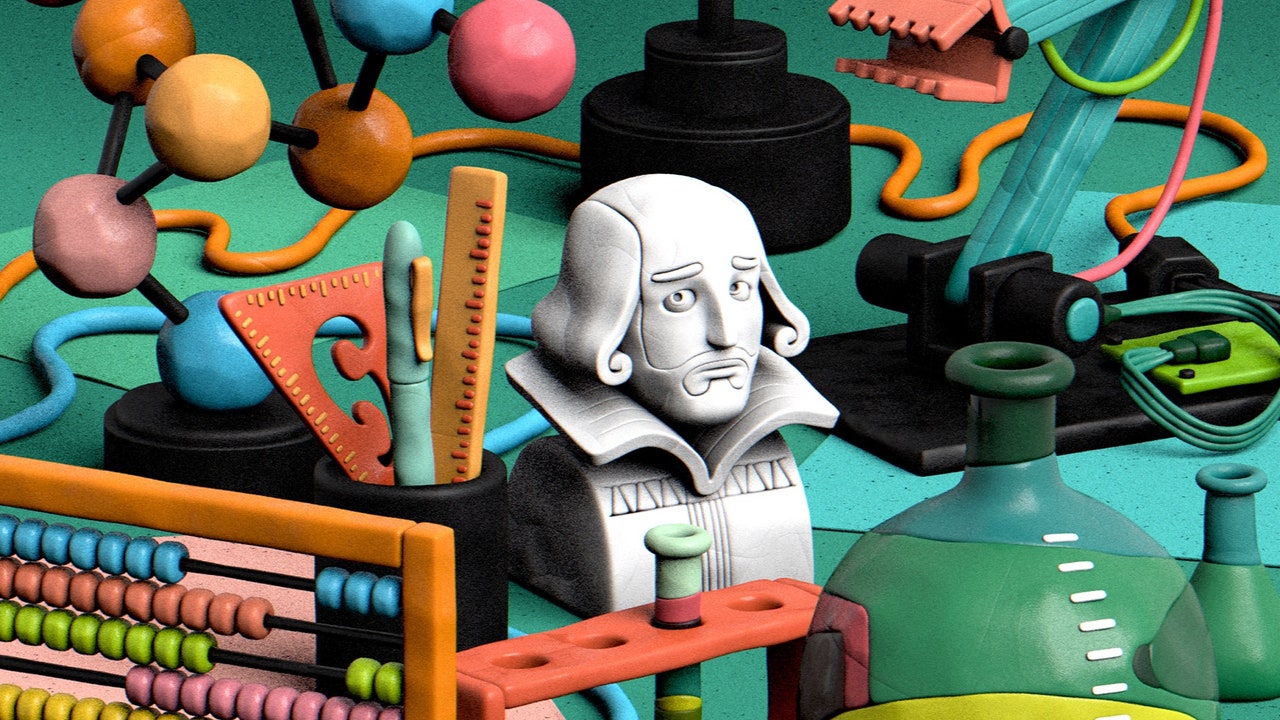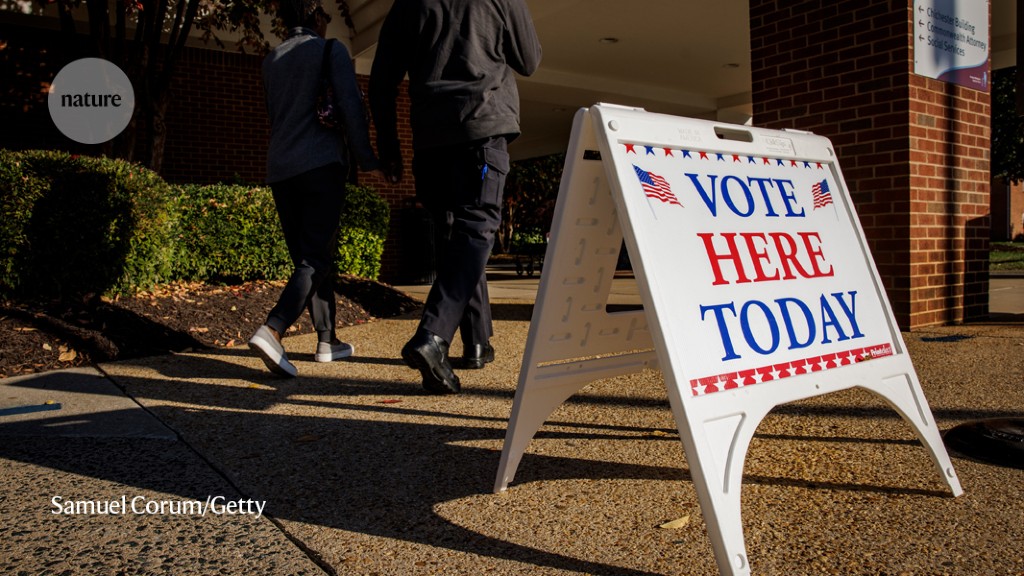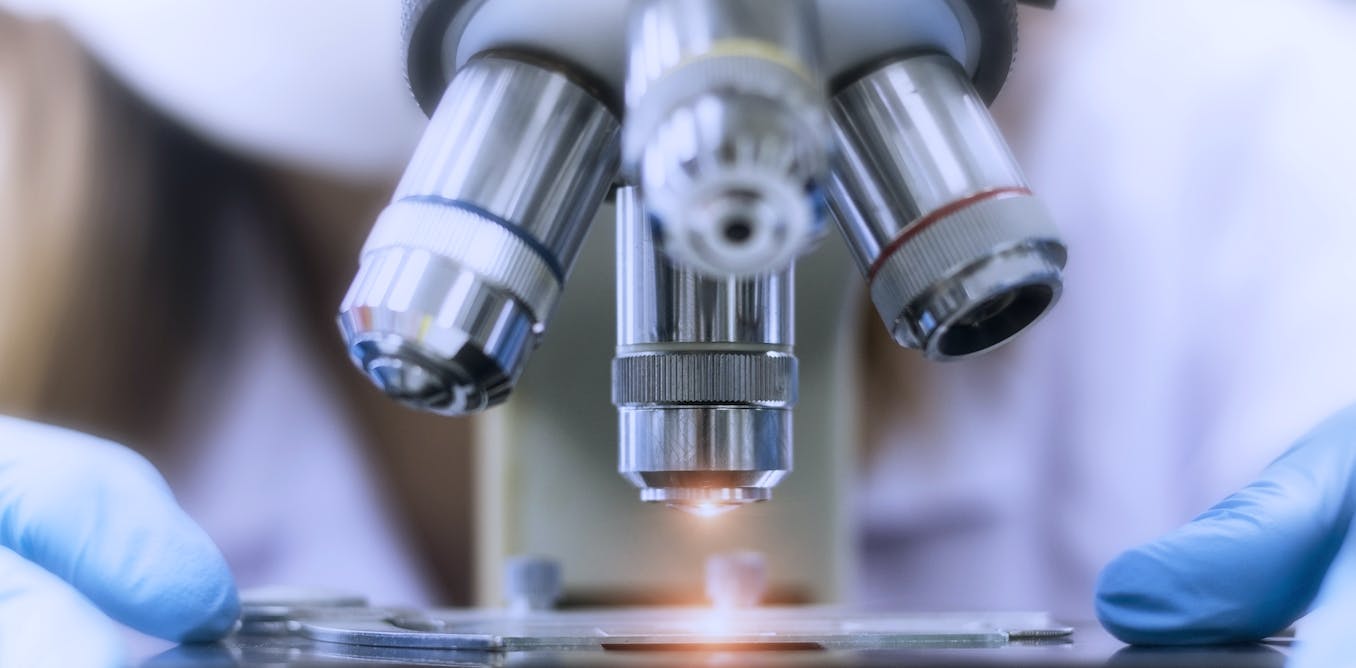Biden's Science Adviser on the US Push to Compete with China
Arati Prabhakar speaks to Nature about innovation, science's role in political decision-making and taking the reins after scandal.

Send us a link
Arati Prabhakar speaks to Nature about innovation, science's role in political decision-making and taking the reins after scandal.

China, the US and the EU's race to control their own scientific advances and cut out supply chain dependencies could lead to a "decoupling" of research activities at a time when collaboration to solve global issues is crucial, says a stark report by the OECD.
Facing a potential re-election battle next year, President Joe Biden laid out broad funding priorities for the US government on 9 March. His proposed budget for 2024 would invest new research funds into a range of programmes designed to achieve goals in scientific innovation, domestic manufacturing and clean energy, among others.
During the past decade, the study of English and history at the collegiate level has fallen by a full third. Humanities enrollment in the United States has declined over all by seventeen per cent. What’s going on?

The Union of Concerned Scientists (UCS) recently conducted a survey of federal scientists to ask about the state of science, and the results are in. This is our tenth version of the survey since 2004 and, to our surprise and delight, while challenges remain, the widespread consensus is that scientists in the federal government feel more positive about their workplaces now than they have at any other time we have administered the survey.

Federal scientists would largely be barred from publicly discussing research, which could have a "chilling effect", experts say.

The US government will be implementing science initiatives from recent legislation while battling over future funding.
Draft report from biosecurity panel examining “gain-of-function” research policy gets mixed response from outside experts.
The NIH sets postdoctoral trainee stipend levels that many institutions use as a basis for postdoc salaries - but while salary standards are held constant across universities, the cost of living in those universities’ cities and towns vary widely.
In 2014, Chinese researchers published more papers than any other country for the first time. In 2019, China overtook the U.S. as the No. 1 publisher of the most influential papers.

NIH to require researchers to submit a Data Management and Sharing Plan with grant applications submitted after Jan. 25, 2023
The COVID-19 pandemic prompted many discussions about how people's trust in science shaped our ability to address the crisis. Early in the pandemic, our research team set out to understand how trust in science relates to support for public health guidelines, and to identify some trusted sources of science. In this essay, we share our findings and offer ideas about what might be done to strengthen the public's trust in science. Notably, our research shows a stark partisan divide: Republicans had lower support for public health guidelines, and their trust in science and institutions such as the Centers for Disease Control and Prevention and the National Institutes of Health eroded over time. Meanwhile, Democrats' trust in science has remained high throughout the pandemic. In the context of this divide, we explore how trust in various information sources, from governmental institutions to the media, relates to trust in science, and suggest that the best avenue for rebuilding trust might be through empowering local institutions and leaders to help manage future crises.
The EU and US have set out a joint roadmap to find common ways to define and evaluate artificial intelligence (AI), though critics say they are still not going far enough to make sure AI protects democracy and human rights.
Today, the White House Council on Environmental Quality (CEQ) and the White House Office of Science and Technology Policy (OSTP) jointly released new government-wide guidance and an accompanying implementation memorandum for Federal Agencies on recognizing and including Indigenous Knowledge in Federal research, policy, and decision making. This announcement coincides with the Biden-Harris Administration's 2022 Tribal Nations Summit and…

For years, big advances in science and technology have propelled economic growth world-wide. Now, as geopolitical tensions mount, leaders of the US scientific community fret that rising government security measures may kill the goose that laid the golden egg.
Empirical data do not support the conclusion of a crisis of public trust in science. They do support the conclusion of a crisis of conservative trust in science: polls show that American attitudes toward science are highly polarized along political lines. In this essay, we argue that conservative hostility toward science is rooted in conservative hostility toward government regulation of the marketplace, which has morphed in recent decades into conservative hostility to government, tout court. This distrust was cultivated by conservative business leaders for nearly a century, but took strong hold during the Reagan administration, largely in response to scientific evidence of environmental crises that invited governmental response. Thus, science-particularly environmental and public health science-became the target of conservative anti-regulatory attitudes. We argue that contemporary distrust of science is mostly collateral damage, a spillover from carefully orchestrated conservative distrust of government.
Likely Republican control of the House presages fiery hearings attacking Biden, but also gridlock
Tuesday's votes will chart the course for the future of health care access, affordability, and public health writ large.

Researchers project changes ahead for federal science if Republicans take control of either chamber of Congress.

US voters are expected to go to the polls in record numbers on November 8, driven by concerns about inflation, the economy and abortion rights. Layered on top of that are low approval ratings for President Joe Biden and ongoing polarisation among voters and politicians stirred by former President Donald Trump's false claims that the 2020 election was stolen from him.
US and EU officials agreed to expand R&D collaboration on cancer, climate change, green aviation and other fields, signaling a further warming of transatlantic science relations.
Magic mushrooms are no magic cure for society's ills, and a substance as powerful as psychedelics can be dangerous if it falls into the wrong hands

The director of the Office of Science and Technology Policy plays a critical role in achieving the president's science goals. Facilitating cooperation among the dozens of research agencies is key.

The White House sent a report to Congress urging that the US do a better job supporting international research collaboration - and saying that currently it is losing out to China and other competitors because of poor organisation.